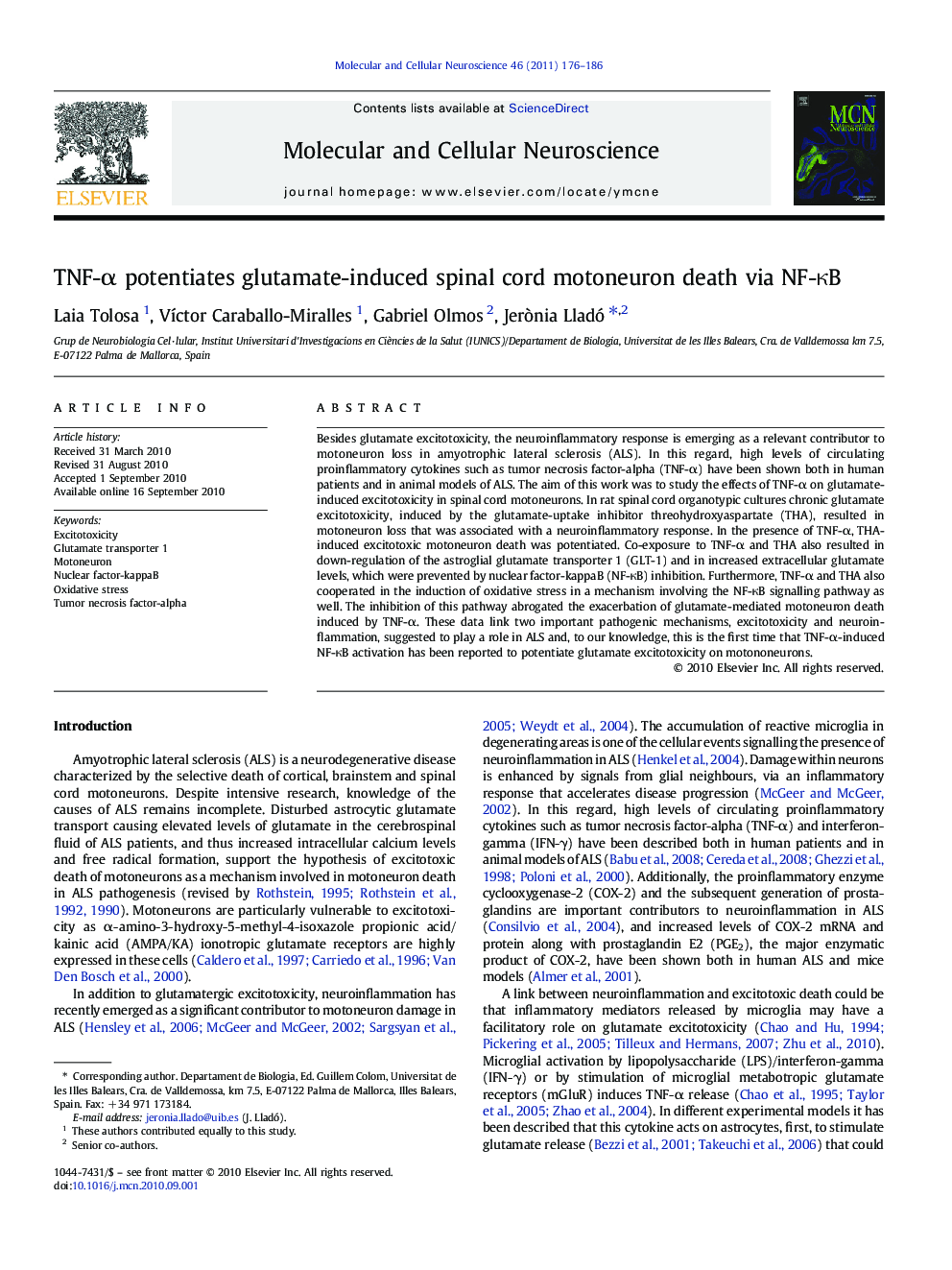| Article ID | Journal | Published Year | Pages | File Type |
|---|---|---|---|---|
| 10956635 | Molecular and Cellular Neuroscience | 2011 | 11 Pages |
Abstract
Besides glutamate excitotoxicity, the neuroinflammatory response is emerging as a relevant contributor to motoneuron loss in amyotrophic lateral sclerosis (ALS). In this regard, high levels of circulating proinflammatory cytokines such as tumor necrosis factor-alpha (TNF-α) have been shown both in human patients and in animal models of ALS. The aim of this work was to study the effects of TNF-α on glutamate-induced excitotoxicity in spinal cord motoneurons. In rat spinal cord organotypic cultures chronic glutamate excitotoxicity, induced by the glutamate-uptake inhibitor threohydroxyaspartate (THA), resulted in motoneuron loss that was associated with a neuroinflammatory response. In the presence of TNF-α, THA-induced excitotoxic motoneuron death was potentiated. Co-exposure to TNF-α and THA also resulted in down-regulation of the astroglial glutamate transporter 1 (GLT-1) and in increased extracellular glutamate levels, which were prevented by nuclear factor-kappaB (NF-κB) inhibition. Furthermore, TNF-α and THA also cooperated in the induction of oxidative stress in a mechanism involving the NF-κB signalling pathway as well. The inhibition of this pathway abrogated the exacerbation of glutamate-mediated motoneuron death induced by TNF-α. These data link two important pathogenic mechanisms, excitotoxicity and neuroinflammation, suggested to play a role in ALS and, to our knowledge, this is the first time that TNF-α-induced NF-κB activation has been reported to potentiate glutamate excitotoxicity on motononeurons.
Keywords
Related Topics
Life Sciences
Biochemistry, Genetics and Molecular Biology
Cell Biology
Authors
Laia Tolosa, VÃctor Caraballo-Miralles, Gabriel Olmos, Jerònia Lladó,
